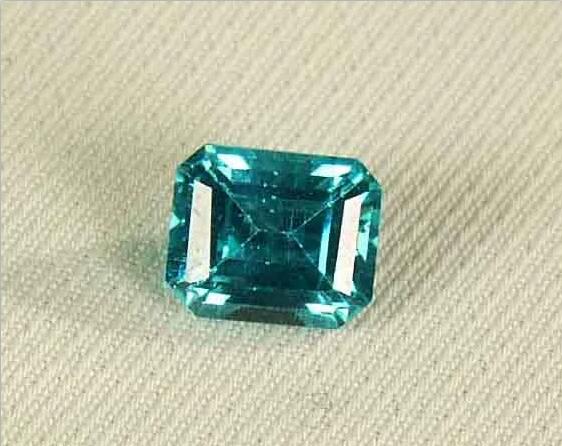In some coastal areas, due to the Bioluminescence plankton bumping in the waves, the sea at night occasionally emits Teal light. Rare earth metals also emit light when stimulated, adding color and radiance to electronic products. The trick, says de Bettencourt Dias, is to tickle their f electrons.
Using energy sources such as lasers or lamps, scientists and engineers can oscillate an f electron in a rare earth to an excited state and then return it to a dormant state, or its ground state. "When Lanthanide return to the ground state, they emit light," she said
De Bettencourt Dias said: Each type of rare earth reliably emits a precise wavelength of light when excited. This reliable accuracy allows engineers to carefully adjust electromagnetic radiation in many electronic products. For example, the luminescence wavelength of terbium is about 545 nanometers, which makes it suitable for building green phosphors in TV, computer, and smartphone screens. Europium has two common forms and is used to build red and blue phosphors. In short, these phosphors can be used on screens Most of the colors of the rainbow are drawn on the screen
Rare earths can also emit useful invisible light. Yttrium is the key component of Yttrium aluminium garnet or YAG. YAG is a synthetic crystal, which forms the core of many high-power lasers. Engineers adjust the wavelength of these lasers by adding another rare earth element to the YAG crystal. The most popular variety is neodymium doped YAG laser, which is used for various purposes from cutting steel to removing tattoos to laser ranging. Erbium YAG laser beams are a good choice for Minimally invasive procedure, because they are easily absorbed by the water in the body, so they will not cut too deep.
In addition to lasers, lanthanum is essential for making infrared absorbing glasses in night vision glasses. Molecular engineer Tian Zhong from the University of Chicago said, "Erbium drives our internet. Most of our digital information travels through optical fibers in the form of light with a wavelength of approximately 1550 nanometers - the same wavelength as erbium emits. The signals in fiber optic cables darken away from their source. Because these cables can extend thousands of kilometers on the seabed, erbium is added to the fibers to enhance the signal
Post time: Jul-03-2023
